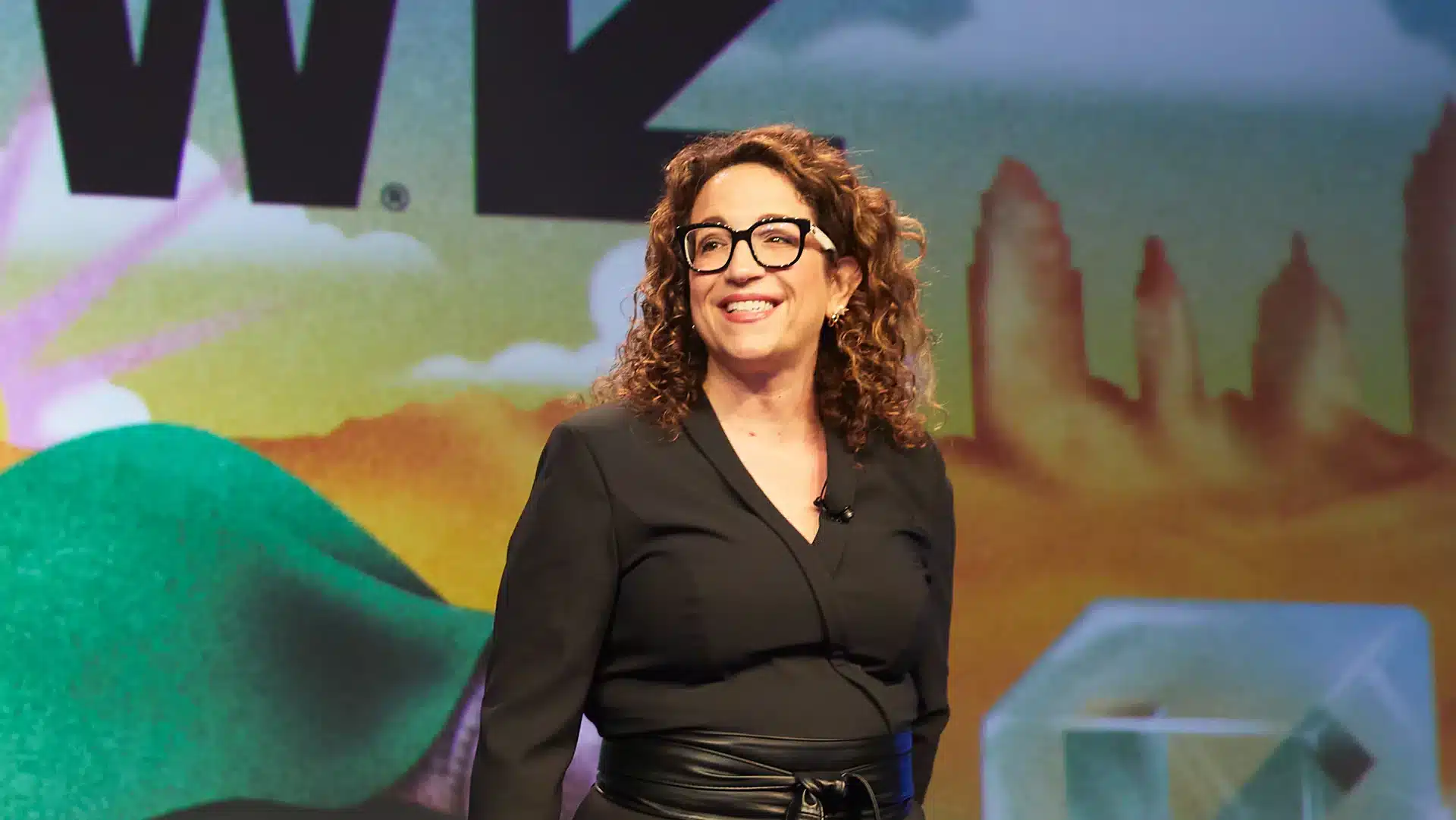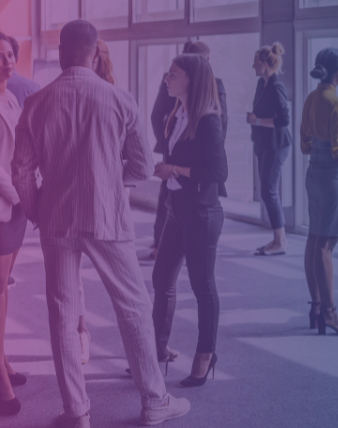SXSW 2025: Meeting Amy Webb

As a key player in driving French innovation, BPI France has a strong presence at at SXSW, and collaborated with FACC Texas to connect French entrepreneurs and business leaders. In 2025, Aurore Ladeveze, Director of Strategic Partnerships at the FACC, organized a meeting between BPI France leaders Arnaud Caudoux and Nicolas Dufourcq and Amy Webb, one of the foremost futurists. This exchange provided an opportunity to discuss the future of technology and innovation from both a French and global perspective.
One of the most anticipated moments of SXSW 2025 was Amy Webb’s keynote address, where she unveiled her Emerging Tech Trend Report. This year, she explored the fusion of technology and science, highlighting its transformative effects on industries ranging from labor automation to climate change. With clear, actionable insights, Webb’s analysis offered a compelling look at the forces shaping the future—insights that are crucial for business leaders navigating an era of rapid technological change.
Innovation Driven by Human Decisions
Webb began her talk by reminding the audience that innovation does not occur in isolation—it is driven by human choices. According to her, the challenge moving forward is not just about creating new technologies but about ensuring those technologies have positive impacts on society. Innovation, Webb argued, is a reflection of our decisions, and how we choose to use technology today will shape the world of tomorrow.
The Human Limit of Artificial Intelligence
One of the most pressing topics Webb discussed was the rapid evolution of Artificial Intelligence (AI). While AI continues to grow at an astonishing rate, Webb pointed out that it still falls short of matching the complexity of human intelligence. However, as AI becomes more integrated across industries, ethical and regulatory challenges will intensify. Webb warned that businesses, governments, and society at large must come together to establish ethical frameworks and regulations that ensure AI remains a force for good, without compromising privacy or human rights.
Robotics: Shaping the Future of Automation
In recent years, robotics has made significant strides, with companies like Boston Dynamics pushing the boundaries of what machines can do. Webb explored how robots are becoming capable of performing complex tasks, ultimately redefining automation in industries ranging from manufacturing to healthcare. She acknowledged the promise of increased efficiency but also highlighted the growing concern over job displacement. As automation continues to evolve, the challenge will be ensuring that human workers are not left behind.
Neurotechnology: Unlocking the Mind-Machine Connection
One of the more exciting developments Webb discussed was neurotechnology. Advances in brain-machine interfaces have made it possible to interpret brain activity with remarkable precision, opening up new possibilities in fields like healthcare, communication, and accessibility. Webb spoke of the potential for reconstructing images directly from thoughts and the profound impact this could have on people with disabilities, allowing for a more inclusive society. These breakthroughs, she noted, are just the beginning of what could become a revolution in brain-computer interactions.
Smart Cities: Beyond Traffic Management
Webb’s vision for the future of smart cities goes beyond the usual focus on traffic management. While many cities have already implemented connected traffic lights and smart infrastructure, Webb highlighted the shift towards more holistic solutions that optimize energy use, mobility, and sustainability. In the future, she predicted that cities will become fully integrated ecosystems, reducing their environmental footprint while enhancing the quality of life for residents.
Programmable Materials: Revolutionizing Manufacturing
A fascinating topic Webb explored was the development of metamaterials, which are revolutionizing material science. These advanced materials allow for the creation of smart structures that can adapt to their environment. Webb discussed their potential applications in areas like architecture, medicine, and advanced manufacturing, where programmable materials could drastically improve energy efficiency and sustainability.
Climate Change and Technology: A Symbiotic Relationship
As the world grapples with the growing threat of climate change, Webb argued that technology will play a central role in combating environmental degradation. From clean energy innovations to sustainable materials, she emphasized that technological advancements must be aligned with efforts to reduce carbon emissions. Webb pointed to the increasing integration of environmental solutions in technology as a hopeful sign that the fight against climate change will be fought on multiple fronts.
The Need for Ethical Regulation in Technology
With the rapid pace of technological advancement, regulation has become a critical concern. Webb stressed the need for businesses, governments, and society to anticipate the societal impact of technologies like AI, robotics, and neurotechnology. She argued that regulation must keep pace with innovation to ensure that technology serves the public good, and does not infringe upon fundamental rights. Only through thoughtful governance, Webb believes, can we ensure that technology is used responsibly.
Automation and the Economy: Preparing for the Future of Work
One of the most pressing challenges of the modern era is the rise of automation—particularly through AI and robotics. While these advancements hold great potential, Webb noted that they also bring the challenge of job displacement. To address this, she argued, we must rethink our approach to education and workforce training, ensuring that new generations are equipped with the skills required for a highly automated world.
The Future Is Collaborative
In conclusion, Webb emphasized that the future is collaborative. She stressed that innovation is not a solitary endeavor but a collective effort that requires the active participation of businesses, governments, and citizens. To harness the power of technology for the benefit of all, Webb believes that human values must remain at the heart of innovation. As we move forward, she urged the audience to remember that the future is not a fixed destination—it is a path we build together.
Looking Ahead
Amy Webb’s insights at SXSW 2025 reaffirmed the importance of thoughtful innovation in shaping the future. As we navigate an era of rapid technological change, her call for ethical frameworks, collaborative efforts, and a focus on human well-being resonates more than ever. SXSW once again proved to be an essential platform for understanding and navigating the technological disruptions that are transforming our world. The future may be uncertain, but with careful planning and collective action, it holds immense promise.
SXSW 2025 reaffirmed its position as a space not just for showcasing cutting-edge technologies but for forging the paths that will define our shared future. As Amy Webb’s presentation demonstrated, the decisions we make today will determine the world we live in tomorrow.

